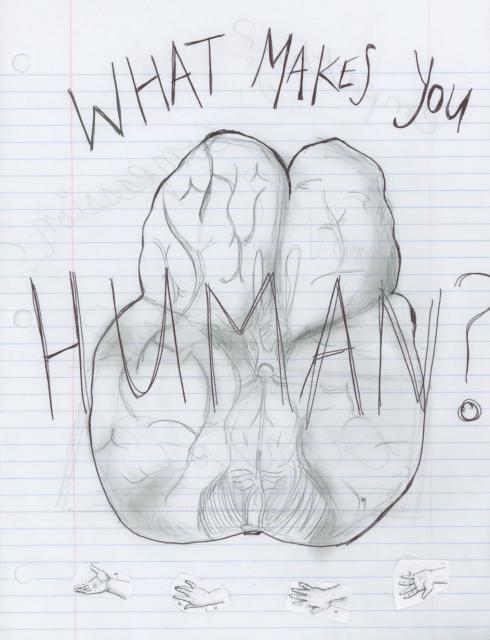Serendip is an independent site partnering with faculty at multiple colleges and universities around the world. Happy exploring!
brain

The Dangers of Integrating Mind and Internet
While our class was talking to Michael Chorost yesterday, I was struck by what seemed to me a glaring flaw in his plan to integrate human minds with the Internet. Fusing a brain and a microchip is one thing (which has a specific function that only affects you), but connecting your mind to other peoples’ minds could have all sorts of ominous implications. It seems obvious to me that the most dangerous of these problems is the possibility of a virus or hacker infecting the mind as it would an online website.

That Sound of What is Silence
I found Tian's presentation on information and musical notation to be incredibly intriguing. I have to admit, beginning the class with John Cage's 4'33" was a little awkward. I thought this "performance" would involve "performing"--I didn't think he would simply stand in front of the class. However, I came to realize I was naively approaching and defining what it is to "perform" and what it means to "listen." After a few minutes of silence, Tian asked the class, "What did you hear?" What did I hear?? Was this a trick question? I heard the cars passing by, I heard the hum of the projector... To my surprise, it turns out Cage's Four Minutes Thirty-Three is one of his most famous musical compositions--the catch, it involves no music.

Babel On
Thursday in our small group discussion we touched upon the idea of the Library of Babel and how everything that will ever exist in the world has already been created. Fortunately, for us wondering minds and gatherers of knowledge there seems to be a number of things to explore. So much that it's suggested that the infinite number of possibilities may never actually be "checked out" of the library. Is this a good thing or a bad thing?
Are we creating anything new? or simply reiterating or putting forward thoughts and ideas that already exists? This is the question i found myself stuck on even after the discussion.

Evolutionary Psychology
One thing from the previous class that struck me was Clark's criticism of Evolutionary Psychology in relation to humans being natural-born cyborgs. Although he criticizes the field, I feel that in reality it supports his point. It seems evident to me that we have evolved to seek out the use of tools to improve our quality of life. First we created ways to sustain life using tools to kill or gather food, build shelter, and protect ourselves from the elements. After our survival needs were met we continued to search for and create ways to use technology to make our lives easier or better—otherwise we would still be living as cave people.





